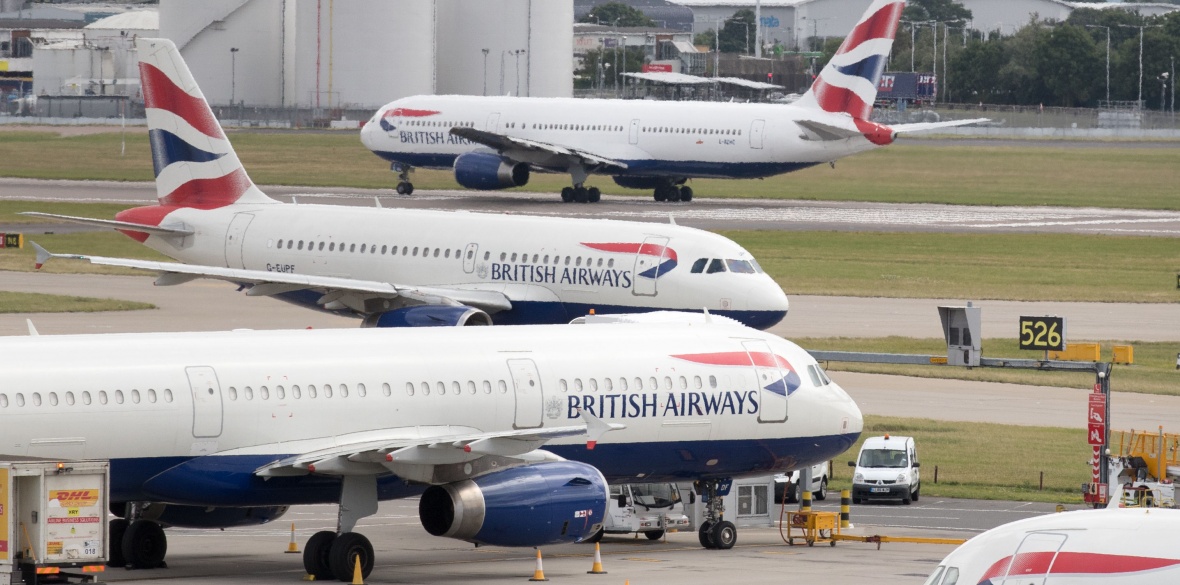This is the last article you can read this month
You can read more article this month
You can read more articles this month
Sorry your limit is up for this month
Reset on:
Please help support the Morning Star by subscribing here
LEST we forget, British Airways is a privately owned multinational company whose bottom line is making the biggest profits for its shareholders.
It is not our national asset — in fact it is a transnational conglomerate which gobbled up a clutch of rivals, owns Air Iberia and is based in Madrid.
It is the height of hypocrisy for BA to present the pay strike ballot by the airline’s pilots as a threat to the holidays of its customers.
The union representing the air crew, the British Airline Pilots’ Association (Balpa), jumped through every hoop that Britain’s highly restrictive union legislation places before workers who want to take action.
A measure of the pilots’ determination is their 93 per cent vote in favour of strike action.
The airline complains that a strike could affect its profitability with a £40 million hit for each day of industrial action.
All the more reason, you might think, for the company’s negotiators to sit down at the earliest possible moment with Balpa to work out a deal.
Instead, confident that the law favours the most restrictive of interpretations, the firm went down the employers’ tried and trusted route of seeking an injunction on a technicality.
In many cases, because the legislation is so restrictive, any judge — invariably a figure unlikely to have much practical workshop, site-specific or human relations experience — can usually be expected to give the employer the benefit of their lack of familiarity with the untidy world of class conflict.
But in this case, the employers’ evidence was so flimsy that three judges chucked it out.
Airline pilots are a well organised group of highly qualified professionals whose expertise and experience and the seasonal nature of the demand for airline seats makes their negotiating position stronger than that enjoyed by many groups of workers.
For millions of workers, most especially in the private sector but throughout the world of work, the workplace balance of class power puts our class at a great disadvantage.
Last year saw a modest but welcome increase in trade union membership, although this masks a decline in the private sector.
Where once more than eight out of 10 workers, whether in a trade union or not, were covered by a collective agreement on wages and conditions, today the figure is barely more than two out of 10.
This is the price we have paid for the decades of Thatcherism followed by the years of austerity.
While in opposition, New Labour made modest promises to repeal the raft of anti-union laws, in government it proved exceedingly reluctant to do much to shift the balance of class power.
We have to be clear. There is no road that leads to an improvement in the lives of working people and their families without a substantial increase in wages that not only makes up for the losses we have suffered over recent years but which would lay the foundations for a more secure world of work for younger generations and our children.
And there will be little advance on the wages front until the power of the bosses is curtailed and workers are able to challenge their employers with confidence and a clear sense of their rights.
As the valuable work of the Institute of Employment Rights and the Campaign for Trade Union Freedom shows, this requires action on a broad front, including removing the obstacles to workers to take action, including solidarity action, and a reconstituted ministry of labour to oversee a system of sectoral bargaining that raises the quality of work and pay and conditions across our economy.
That will do for a start.









